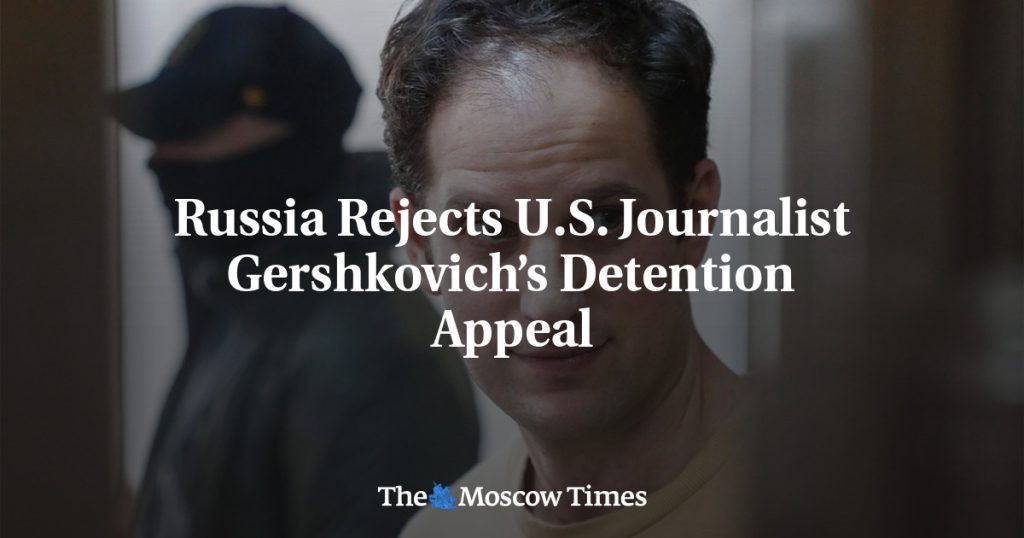A Moscow court has denied U.S. journalist Evan Gershkovich’s appeal against the extension of his pre-trial detention in an espionage case that he and American authorities have rejected as false. Gershkovich, a reporter for The Wall Street Journal, has been held in Moscow’s Lefortovo prison for over a year after being arrested while reporting in Russia. He is the first Western journalist since the Soviet era to be arrested by Moscow on spying charges, which he, his employer, and the U.S. government deny.
During the hearing, the judge ruled that the order to extend Gershkovich’s detention should remain in place until at least June 30 pending a trial, but the hearing did not address the merits of the case. Gershkovich, who previously worked for AFP and The Moscow Times in Moscow, appeared in court wearing a white t-shirt and dark trousers, smiling and giving a thumbs-up when asked how he was doing. Russia has not disclosed specific details of the case against Gershkovich, only stating that he was caught red-handed in Yekaterinburg last March.
There are discussions behind the scenes in Russia about a potential prisoner exchange involving Gershkovich, with President Putin indicating that Moscow would like to see the release of a man Germany claims was working for the Russian government. This could be part of a deal to secure Gershkovich’s release. However, the U.S. has accused Moscow of arresting American citizens in order to use them as leverage to free Russians imprisoned abroad for serious crimes. This exchange of prisoners has been a contentious issue between Russia and the U.S., leading to strained diplomatic relations.
Gershkovich’s detention in a Moscow prison has drawn international attention, with many calling for his release and condemning Russia’s actions. The case highlights the ongoing tensions between the U.S. and Russia, particularly with regards to freedom of the press and the treatment of foreign journalists. Gershkovich’s situation has become a focal point in the broader issue of political prisoners and human rights abuses in Russia, prompting calls for greater scrutiny and accountability.
The denial of Gershkovich’s appeal underscores the challenges he faces in navigating the Russian legal system and seeking justice in a case that many believe is politically motivated. The lack of transparency in the legal proceedings and the broader implications for press freedom in Russia have raised concerns among international observers and advocacy groups. Gershkovich’s case is just one example of the dangers faced by journalists working in repressive regimes and the need for greater protections and support from the international community.
As Gershkovich continues to be held in detention, supporters are advocating for his release and calling for a fair and transparent legal process. The case has become a symbol of the broader threats to freedom of expression and independent journalism in Russia, with implications for journalists around the world. The international community is closely monitoring developments in Gershkovich’s case and pressuring Russian authorities to uphold human rights and ensure a fair trial. Despite the challenges he faces, Gershkovich remains steadfast in his commitment to reporting the truth and seeking justice in a case that has profound implications for freedom of the press in Russia and beyond.


